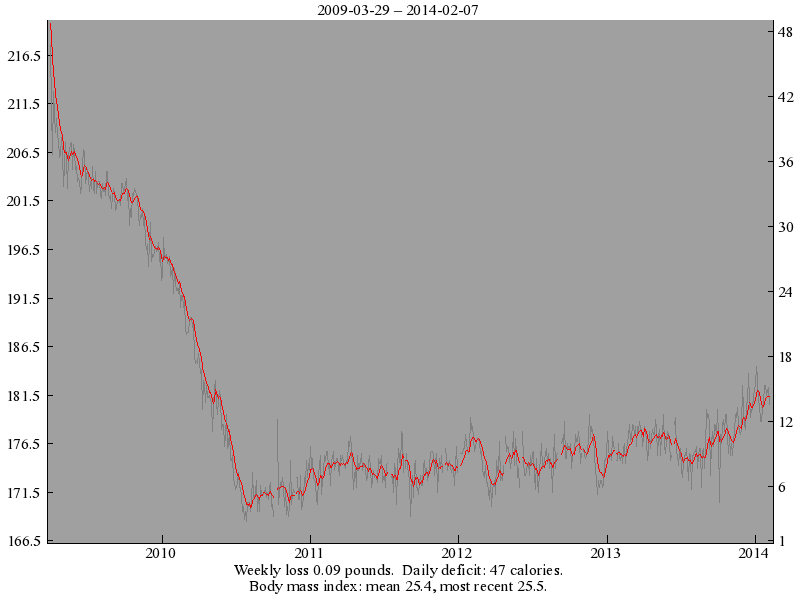One lesson of science, though, is that if the best you can do isn’t good enough to establish reliable knowledge, first acknowledge it — relentless honesty about what can and cannot be extrapolated from data is another core principle of science — and then do more, or do something else. As it is, we have a field of sort-of-science in which hypotheses are treated as facts because they’re too hard or expensive to test, and there are so many hypotheses that what journalists like to call “leading authorities” disagree with one another daily.I'm reminded of the problem in substance-abuse prevention. There's not money to do good studies, and there's not a clear idea in the field that correlation does not equal causation, so we find what appears to be a correlation between something and substance abuse, and try to reduce the something.
When I was taking basic psych in the 70's, I remember that the best theory of the time for the etiology of schizophrenia was the "schizophrenogenic mother".
Below is a graph of my weight from when I first started to manage it in 2009 through yesterday (the grey line is the daily weights; the red is the trend over the previous ten days; the graph is from Hacker's Diet Online).
For the almost-2-years, I was on a quick drop. Since then, I've been more-or-less steady with a slight tendency to rise, but in the past few months, the tendency to rise has sharpened. Some of it is simply about discipline. When I was first losing weight, my attitude was, "I'm a grown-up now; I don't get to eat the way I did when I was younger", just as I don't have the resilience to bounce back from an all-nighter that I had in my 20's (although I was never good at that). But having done this for this long, I find I keep cheating and slipping back to eating the stuff I did prior to March of 2009 (which is the junk I really like, laden with sugar, salt, white flour, & high-glycemic stuff).
My recent situation hasn't helped. I'm not getting out to ride; I'm bored; I'm stuck in the house, not seeing people I'd like to see as often as I'd like to see them. It's not fair to TEW to place all my social needs on her. Nor have I found a good project to work on. Boredom, inactivity, and low-level depression have been undermining my discipline.
But it may also be that the information out there is just not that good. I don't find, for example, that high-fat foods correlate with weight gain, if they're not accompanied by salt, sugar, and the other junk (Taubes says that I'm on the money with that). There's also a conventional wisdom that it's harder to lose weight in winter (I've seen it called the hibernation effect), but there's no good science behind it, and a lot of contradictory blather (check out this link, including the comments).
For me, after two weeks of weigh-ins above my hoped-for downward trend, I've finally been back on track the past two days. I've got to remember: that's not an excuse to relax; it's a sign that I've finally found a system that might work (or might not). But it won't work if I don't stick to it.

No comments:
Post a Comment